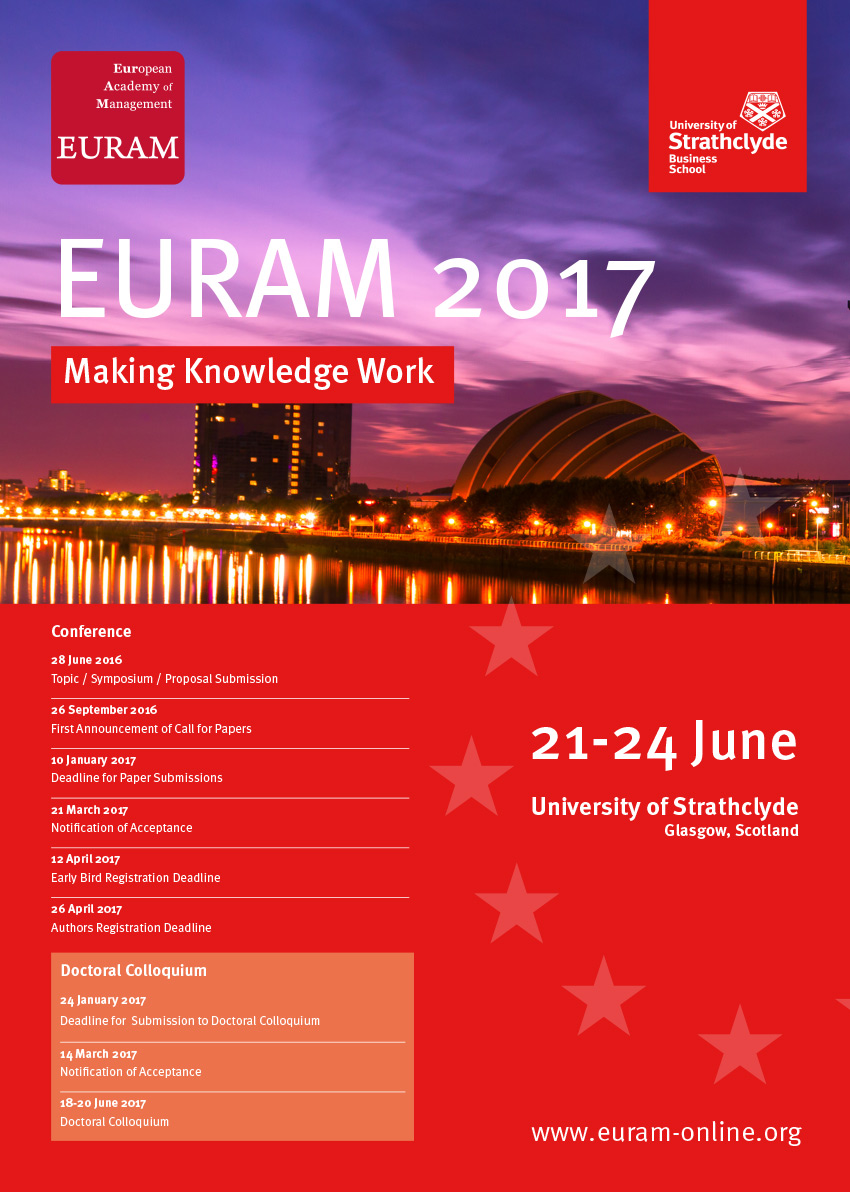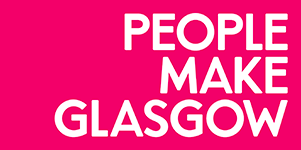The Strategic Interest Group (SIG) Innovation at the European Academy of Management (EURAM) aims to:
- facilitate the continued evolution of an open, inclusive, international and cross- cultural EURAM community of engaged scholars,
- support scholars in designing, producing and disseminating higher quality and impactful research at each stage of their career,
- influence the development of management education,
- provide platforms and facilitate networks for the dialogue between scholars, reflective practitioners, and policy makers.
The Goal of SIG Innovation is to create an open “learning climate” for all members (juniors and seniors) to reach the goals of EURAM in the field of innovation.
SIG Officers:
Pascal Le Masson (Mines Paris Tech, France) This email address is being protected from spambots. You need JavaScript enabled to view it. SIG Chair
Vivek K. Velamuri (HHL Leipzig Graduate School of Management, Germany) This email address is being protected from spambots. You need JavaScript enabled to view it. Programme Chair
Julia Jonas (University of Erlangen Nuremberg, Germany) This email address is being protected from spambots. You need JavaScript enabled to view it. Co-Programme Chair and Communications Officer
GT 06_00 Innovation General Track
The general track offers an umbrella for any innovation-related research that does not find a home in the more specific tracks provided below.
INNOVATION SIG STANDING TRACKS
ST 06_02 Business Model Innovation (co-sponsored by Entrepreneurship SIG-03 and Strategic Management SIG-13)
The business model topic attracts continued interest in business research and practice (Demil et al., 2015; Zott, Baden-Fuller and Mangematin; 2015 Amit and Massa, 2011). This confirmed interest for the business model, and the central question of how to innovate the business model, provide a range of avenues for further research in the field (Spieth, Schneckenberg & Ricart, 2014). However, despite ongoing research efforts to understand the business model and its role in firm performance, scholars face persistent questions about constituent components, sequences and contingencies for the process of business model innovation. Our track aims to pursue these important questions.
ST 06_03 Open Innovation
The track aims to stimulate a discussion on the latest research insights in open innovation, especially with respect to new perspectives, methods, tools, competencies and context-specific solutions.
ST 06_04 Organising Creativity for Innovation: Multidisciplinary perspectives, theories, and practices
This track intends to address research from various disciplines on organisational creativity and innovation. Our objective is to discuss the processes, mechanisms, behaviours, tools and methods that promote or hamper creative and innovative efforts of individuals and teams, and how they can be managed. We focus on: “Organising” which includes (HR) management practices, leadership, organisational elements, and strategic environment; the “Creativity” of individuals and teams in general as well as with a specific creative task; the “Innovation” of products, services, processes, marketing, business models, etc. , and on the contribution to firm “performance”. The track also encourages sessions that focus on the role of HR strategies and practices in facilitating innovation and creativity. We welcome both conceptual/theoretical and empirical contributions.
ST 06_05 Managing for Service Innovation
This track encourages the discourse on the management of service innovation in different settings (digital, industrial, traditional service innovation) and current themes in service innovation research such as the co-creative nature of services and the multi-dimensionality of service innovation as a process demanding for the integration of various stakeholders; the role of the service systems which enable and guide service innovation activities; the role of service innovation platforms and ICTs to align multiple players for service innovation and the need for tools and methods to deal with the process-character of services.
ST 06_06 Knowledge, Learning, and Innovation in Cross-Sector Collaborations
This standing track intends to address research on the intersection of organizational knowledge, learning and innovation. The management of knowledge, learning and innovation is a challenging task within societal sectors but even more in cross-sector collaborations. Organizations from multiple sectors (i.e., government, business and civil society) are increasingly collaborating to find innovative solutions for societal and economic problems, which are too large and complex to be tackled within one sector alone. This track welcomes theoretical and empirical papers which address related challenges to the governance and management of knowledge, learning and innovation in cross-sector- as well as in within-sector collaborations.
INNOVATION SIG 2017 TRACKS
T 06_09 Teaching and learning with a difference
Since knowledge is de-concentrated and widely accessible, teaching may no longer mean “spoon-feeding” transmission. The Academic Territory of our Classrooms is increasingly being policed and controlled by methods of student and faculty evaluation. Resources as space and money become scarce and shape diverse obstructions for good education. Reviewing and renewing the principles that guide education will not only fundamental need to account for the learning needs of diverse audiences (undergraduate and post-graduate students, MBAs, DBAs etc.). Reviewing the principles that guide education will also need to address the burning question of what does teaching management mean today?
The purpose of the track is to propose and analyse avenues for the development in higher education of skills related to business management.
T 06_ 10 Competency Development in Business Management
Companies today are part of more complex and dynamic environments than ever, and this calls for new competencies for managers. Higher education must deal with this challenge, ensuring that students acquire appropriate competencies and that are trained in order to be able to continue learning throughout their lives (lifelong learning). There are certain crucial competencies, skills and abilities: capacity for innovation, leadership, decision-making in uncertain circumstances, teamwork, conflict management and, above all, the ability to acquire and generate knowledge.
T 06_11 Network configurations, location, innovation and time
The development of networks inside geographically bounded spaces, which foster the mutual exchange and collective creation of knowledge, has become particularly important for a firm’s innovative capacity. Inside these locations, such as clusters, industrial districts or science and technology parks, firms establish formal and informal relationships with other co-located firms and institutions. However, the understanding of network evolution still constitutes an emerging topic. Most work has been developed in a static way and focused on endogenous factors for explaining the evolution of the network. In this sense, there are many opportunities to incorporate existing research to better understand the evolution of networks across time.









